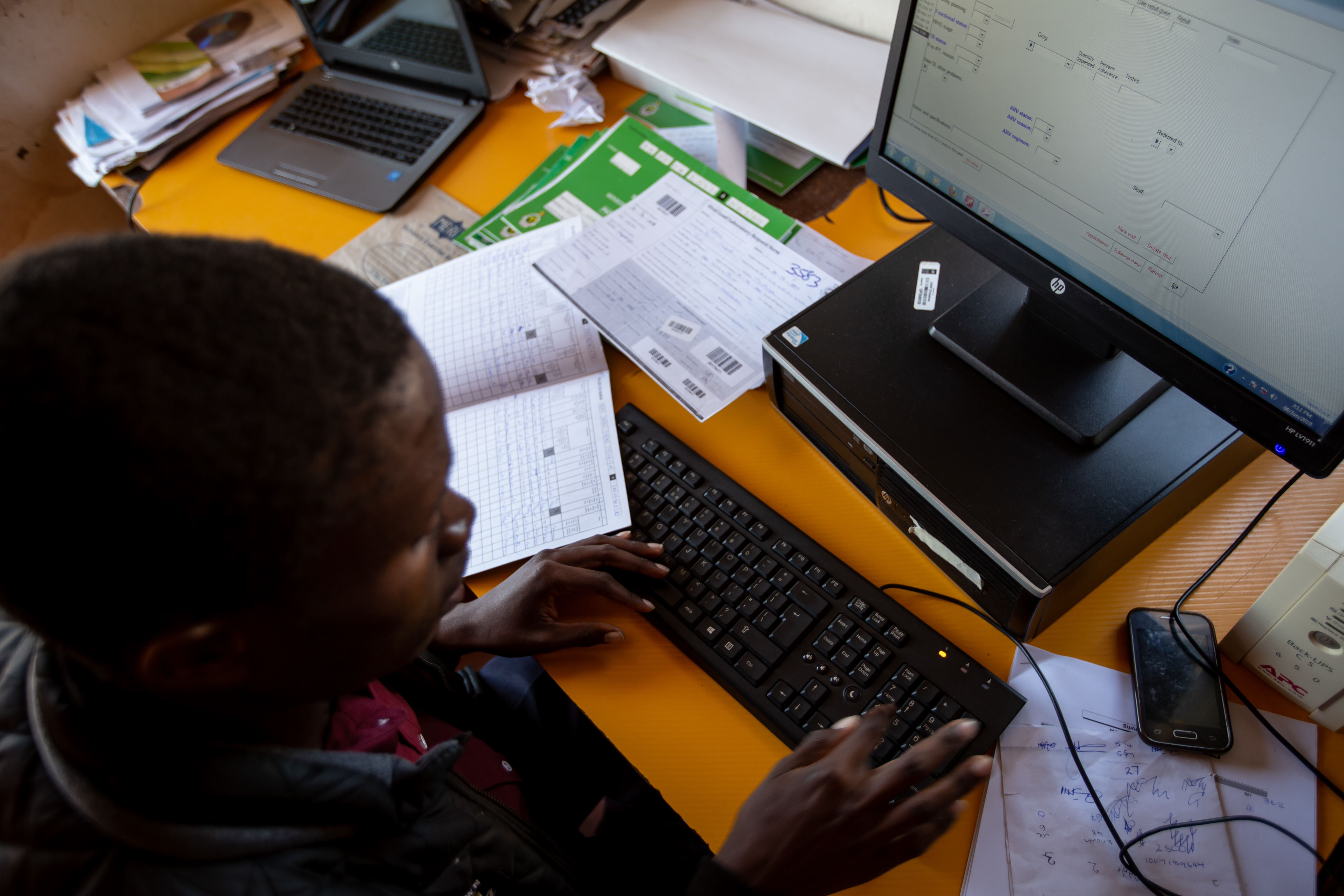Two antidotes to combat a public enemy
Photo credit: UNDP Zimbabwe
By Arvinn Gadgil, Director, UNDP Oslo Governance Centre
We are all in some way or other victims of it. Is sows fear, hate and anger. It creates insecurity, distrust and confusion. Not a single community on the planet is immune. In fact, my boss – the UN Secretary General - has called it an “existential risk to humanity”. That is pretty hefty rhetoric! But he is of course right. It constitutes a public enemy that threatens democracy itself. If we don’t counteract its effects, our societies will be thrown into turmoil. It erodes trust – between citizens and the institutions of the state, and between citizens themselves. And while many factors contribute to public mistrust, this public enemy is a potent additive to the mix, causing a real threat to the social contract, sometimes to explosive effect.
We are of course talking about the scourge of information pollution – false, misleading and manipulated content on- and off-line.
In September 2020, UNDP and other UN agencies made a landmark joint appeal to member states and other stakeholders to develop effective and inclusive responses to information pollution. One year on, the stakes are even higher – vaccine hesitancy severely undermining the global COVID19 response, a growing disinformation-for-hire industry, social media platforms and member states still grappling with the problem and numerous political crises from Belarus to Afghanistan being exacerbated by concerted disinformation campaigns.
But what is the antidote to this poison? What can we do?
Well – before we start to respond, we must acknowledge that there is no single solution, there is no silver bullet. It is a complex problem that is shaped by specific contexts, by specific underlying frictions and interests, and by specific technologies. After that acknowledgement, we can move to administering the two test-ready antidotes.
The first – a solid dose of preparedness. Managing information pollution in crisis is an almost impossible task when communities are not prepared for it. We must learn from member states that have invested in the social, political, and legislative conditions that build societal resilience. Norway’s recent elections serve as an example of a robust political process, accompanied by lively political debate, but with a backdrop of public trust in the process and systems, and access to accurate and trustworthy information. Promoting government accountability and transparency, independent public service media, rights-based regulation, civil society engagement and public awareness and literacy is surely a set of powerful preventive approaches that should have an effect.
The second – a powerful shot of willingness to explore and innovate. If we want to build information ecosystems which serve the public good, member states must be willing to support new and creative initiatives and alliances to reduce the appeal and virality of information pollution. UNDP supports the UN Secretary General’s calls for investments into a new social contract, with information and digital space as two of its foundations. We, as an international community must explore every option to support the UN Secretary General’s common agenda’s vision of developing “a global code of conduct that promotes integrity in public information”. This is the time to shape policies to contribute to that goal. This is the time to join in alliances and invest in exploring new approaches.
That was very unspecific! – I hear you say. Well, that’s the thing – we are still in the early stages of this battle against a public enemy that takes many shapes and forms. While we are starting to gain some experience in designing policy interventions and technical solutions (more on that from UNDP Oslo Governance Centre soon!), we still don’t have a set of approved, tested and prescribed treatments to cure this ill. To really stretch this metaphor perhaps a little too far, we may say that we are at the equivalent stage of the first trial phase of a new vaccine. To get to the next stages we need political will to prepare and innovate, cooperate, and test new policy approaches, technologies and legislative options that combat this public enemy without allowing democracy or privacy to end up as collateral damage. And as we have learnt from the pandemic, also information pollution knows no borders and any success is dependent on strong and coordinated international responses.
I hope that member states share the concerns of the Secretary General and show willingness to administer these two antidotes as soon as possible. We at UNDP are eager to join hands with those who do, as we know human progress is in the balance. We must test and trial to find more specific remedies than I am able to suggest in this blogpost. So please – join in, and take the shots.

 Locations
Locations